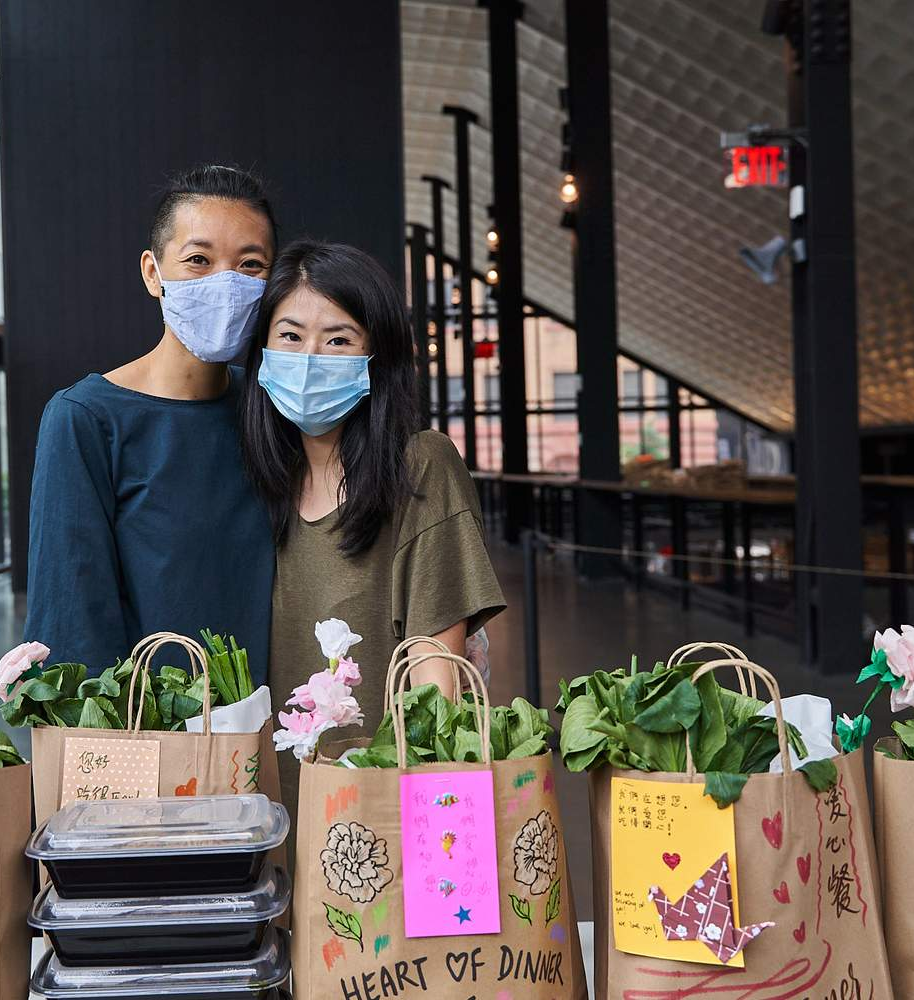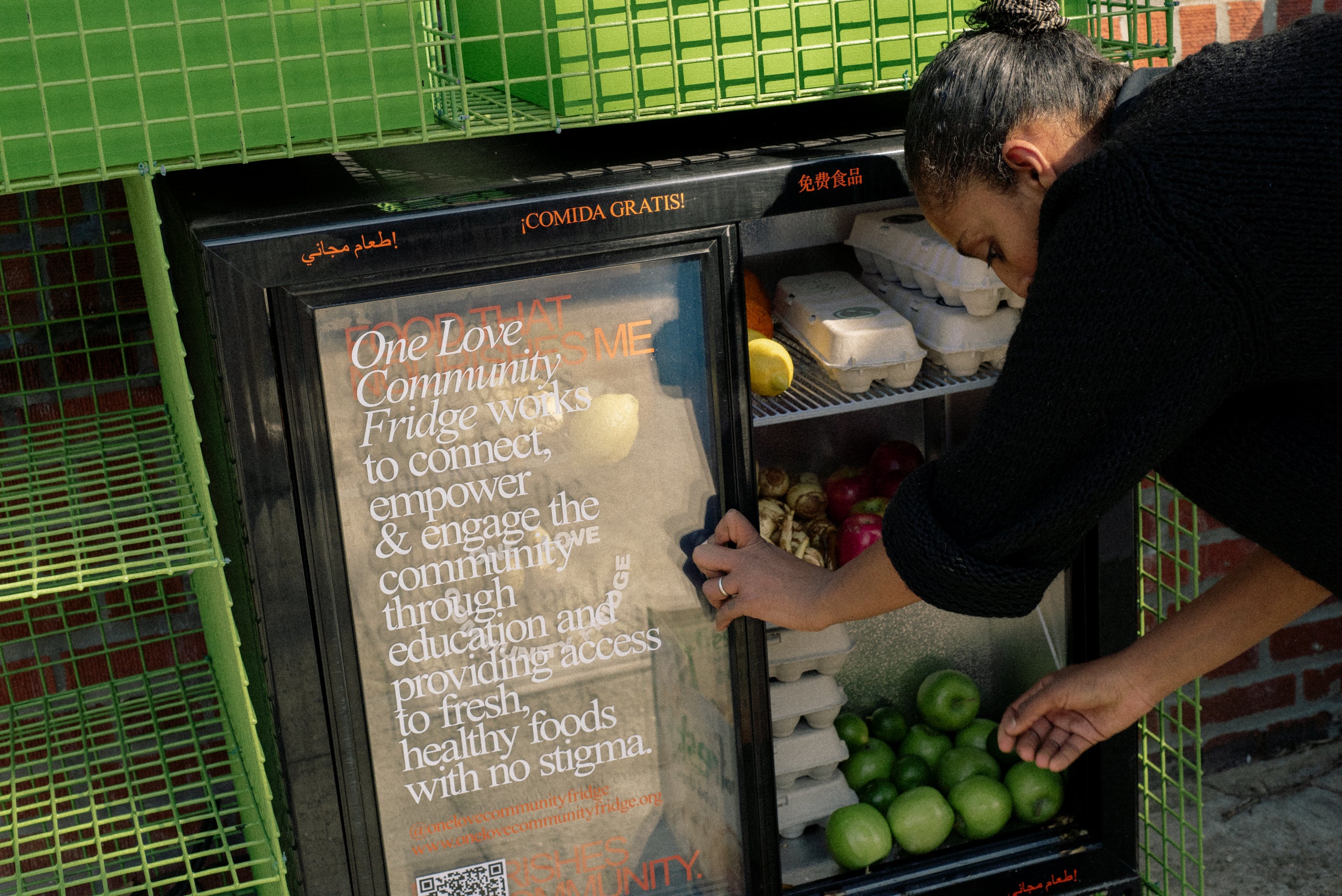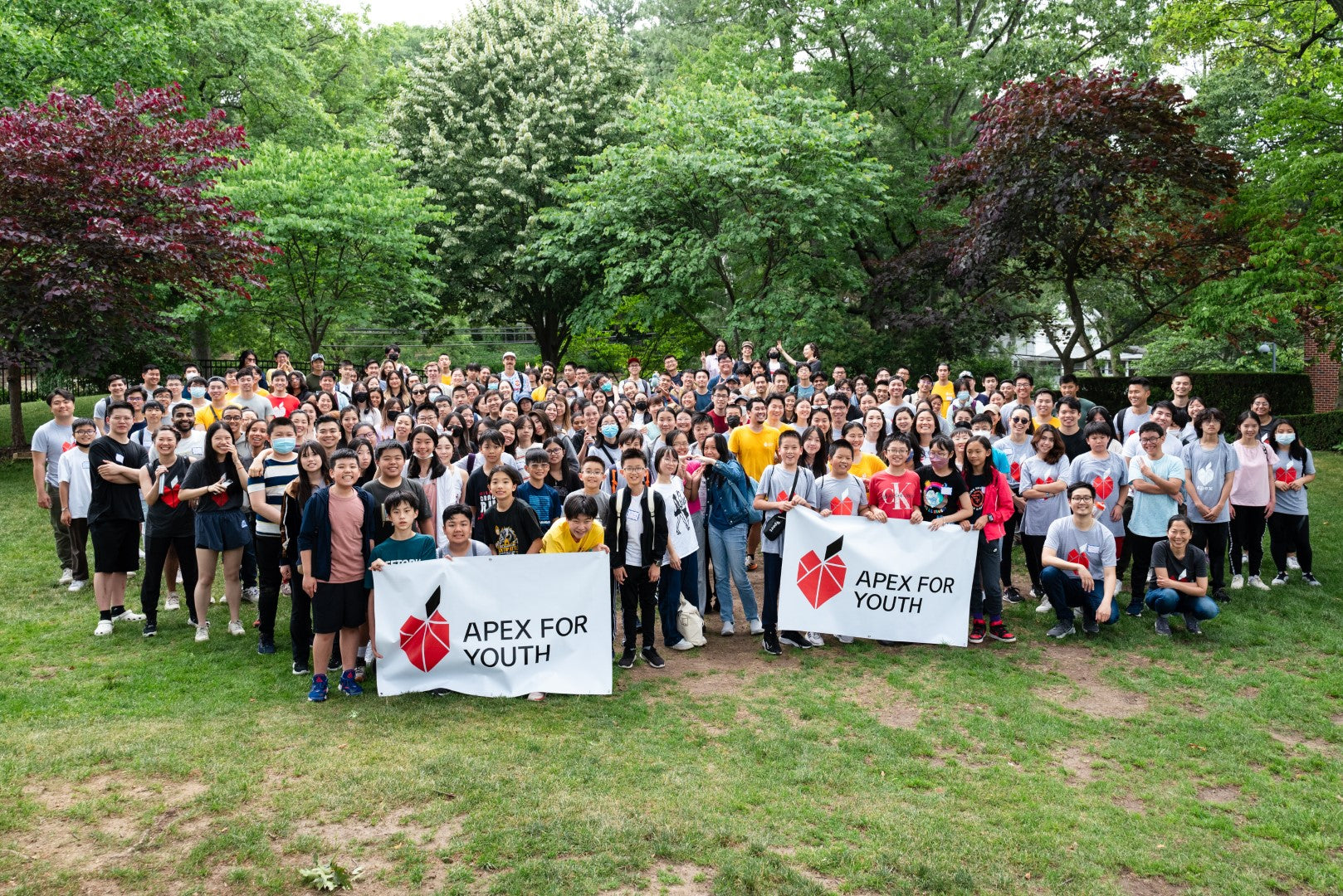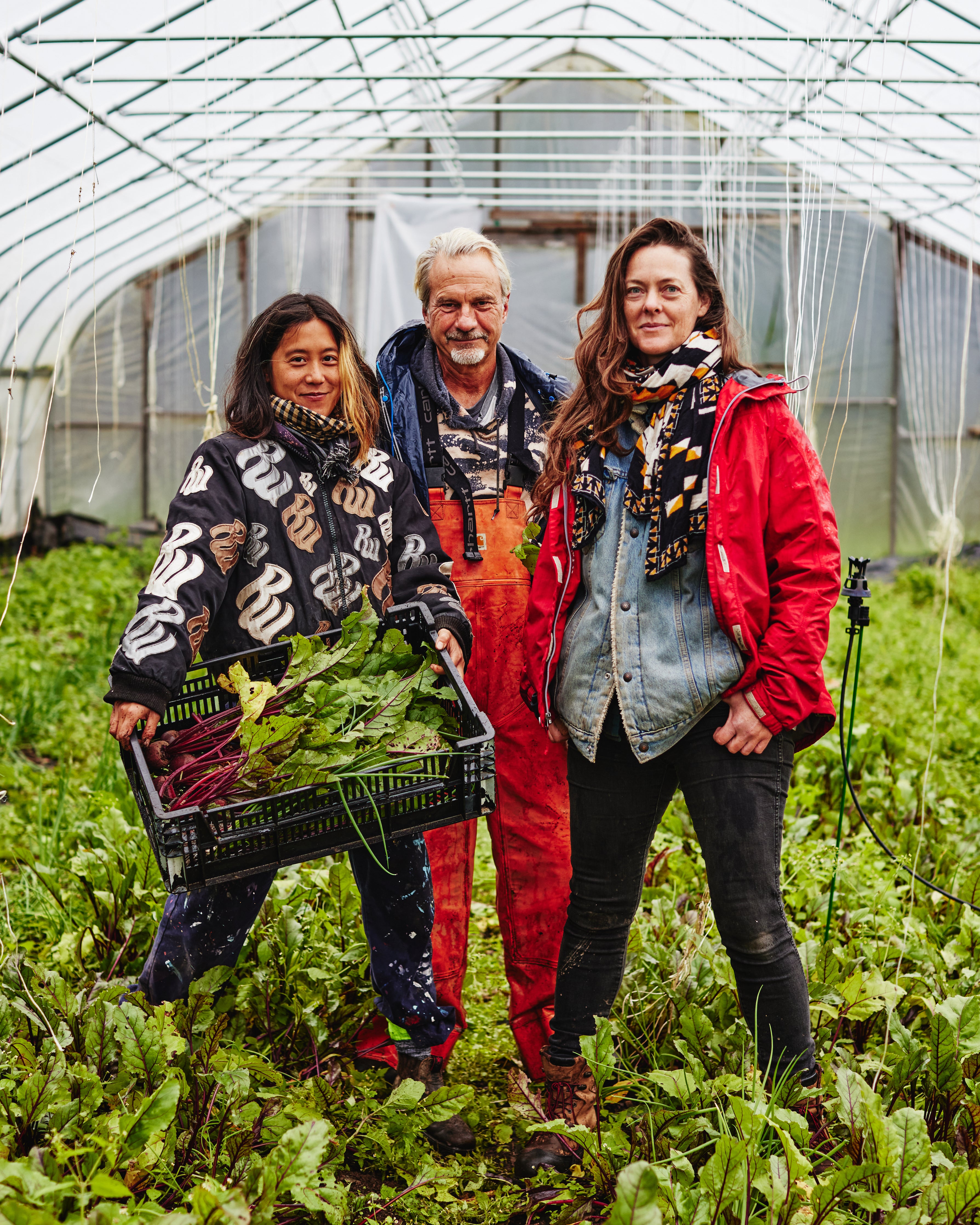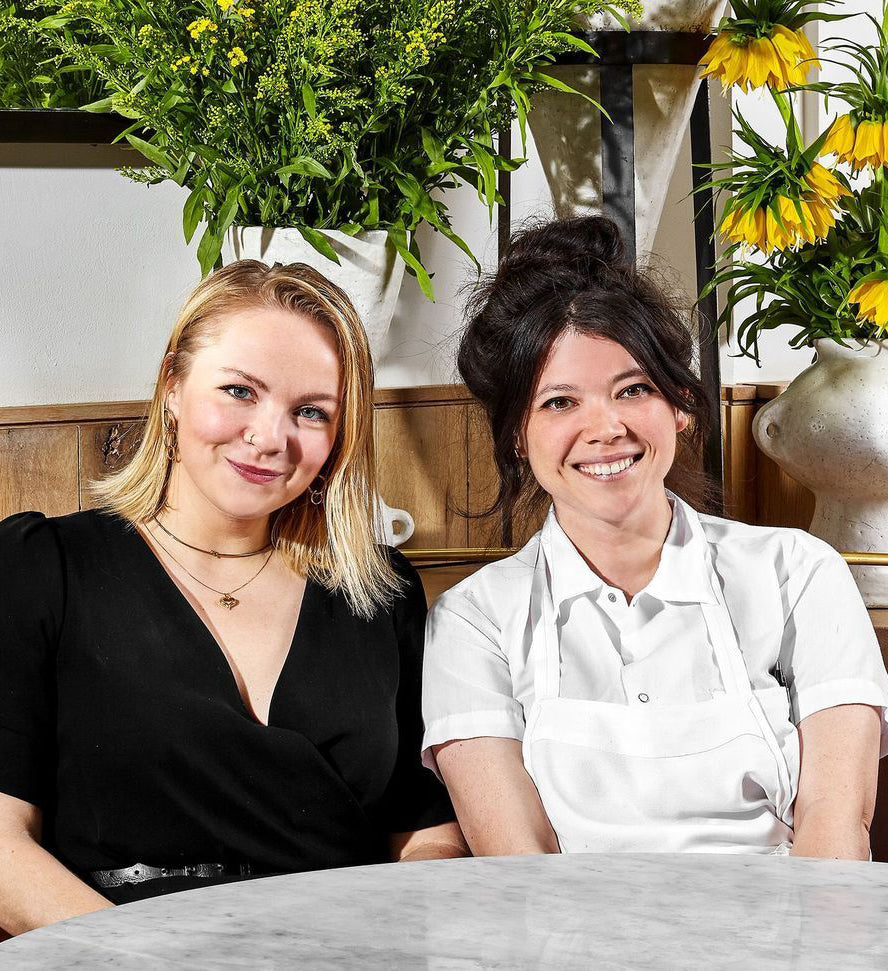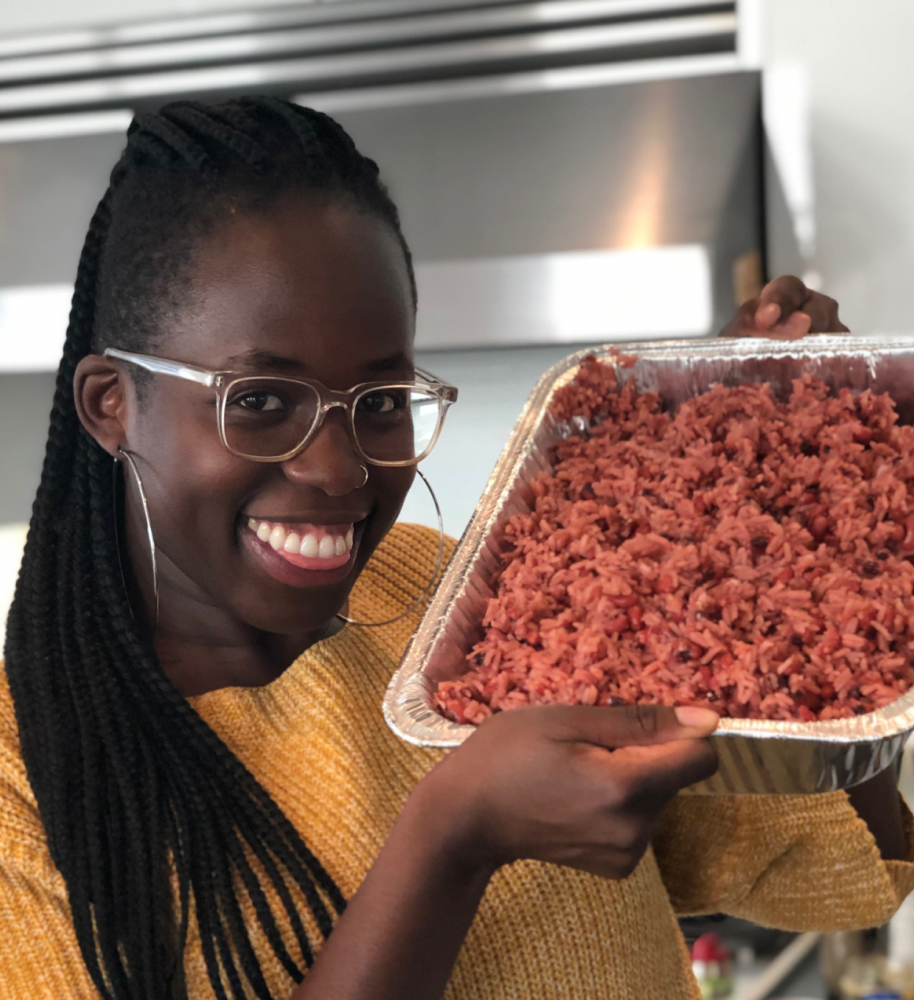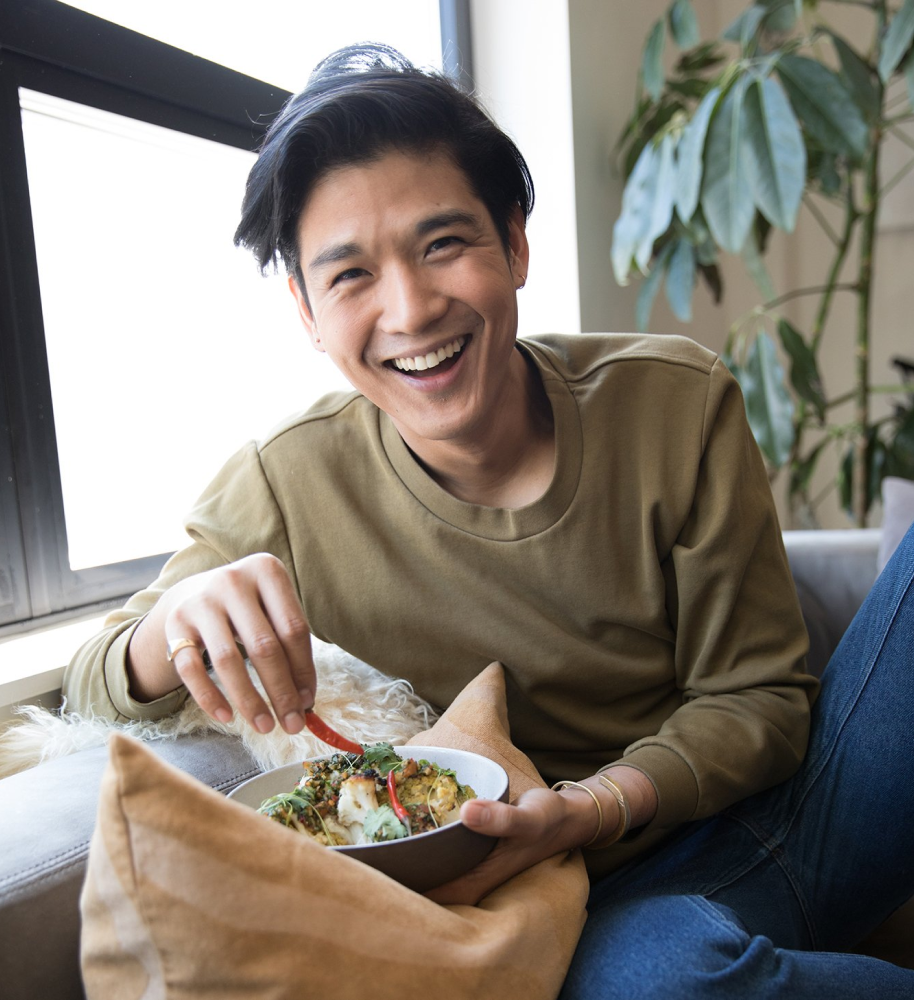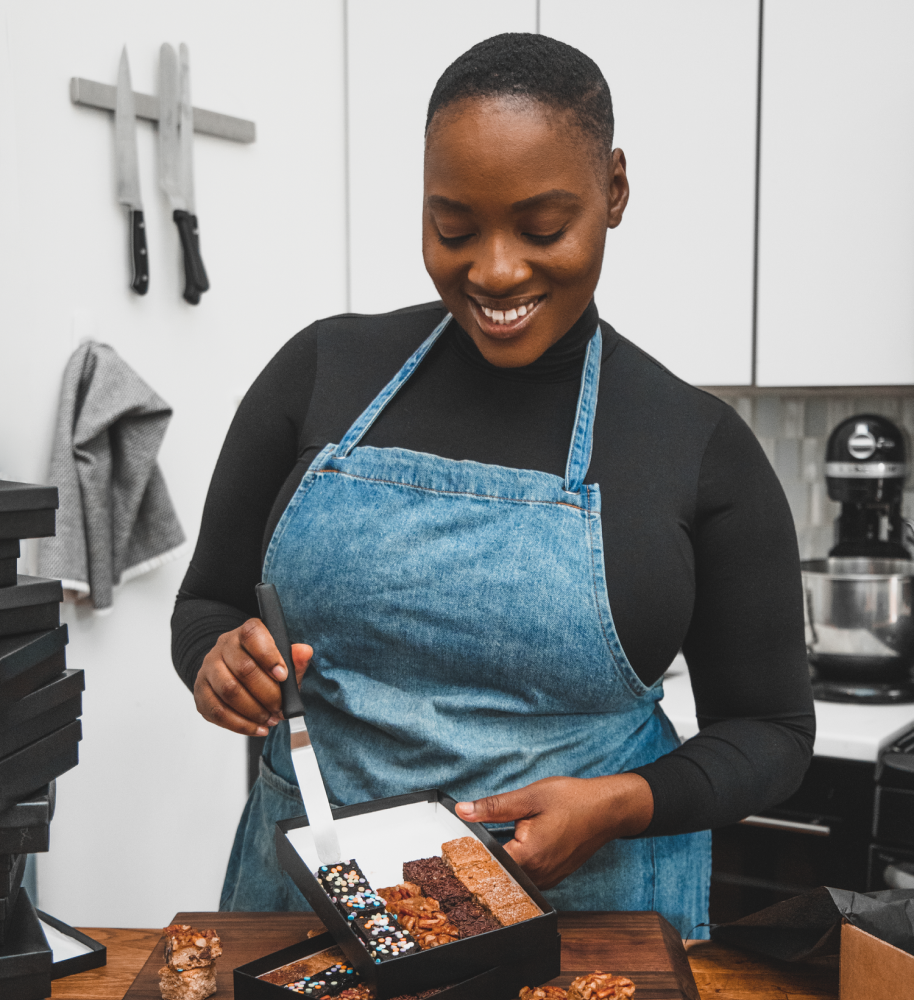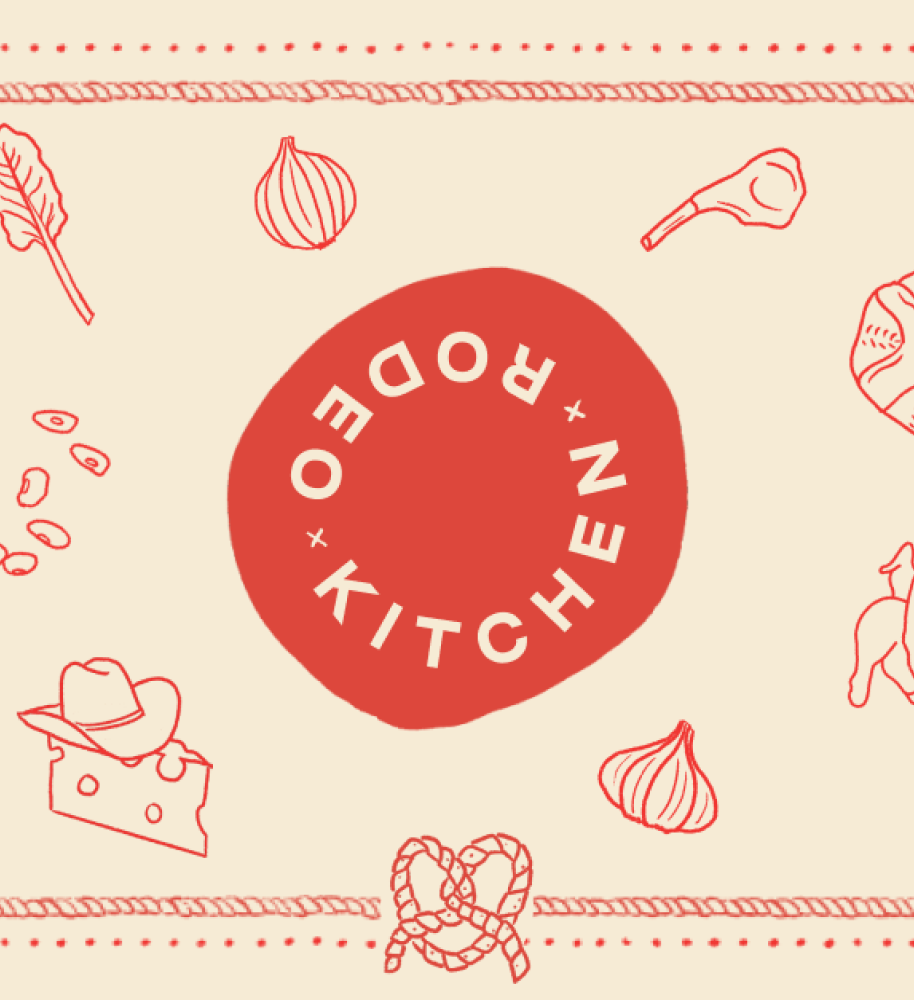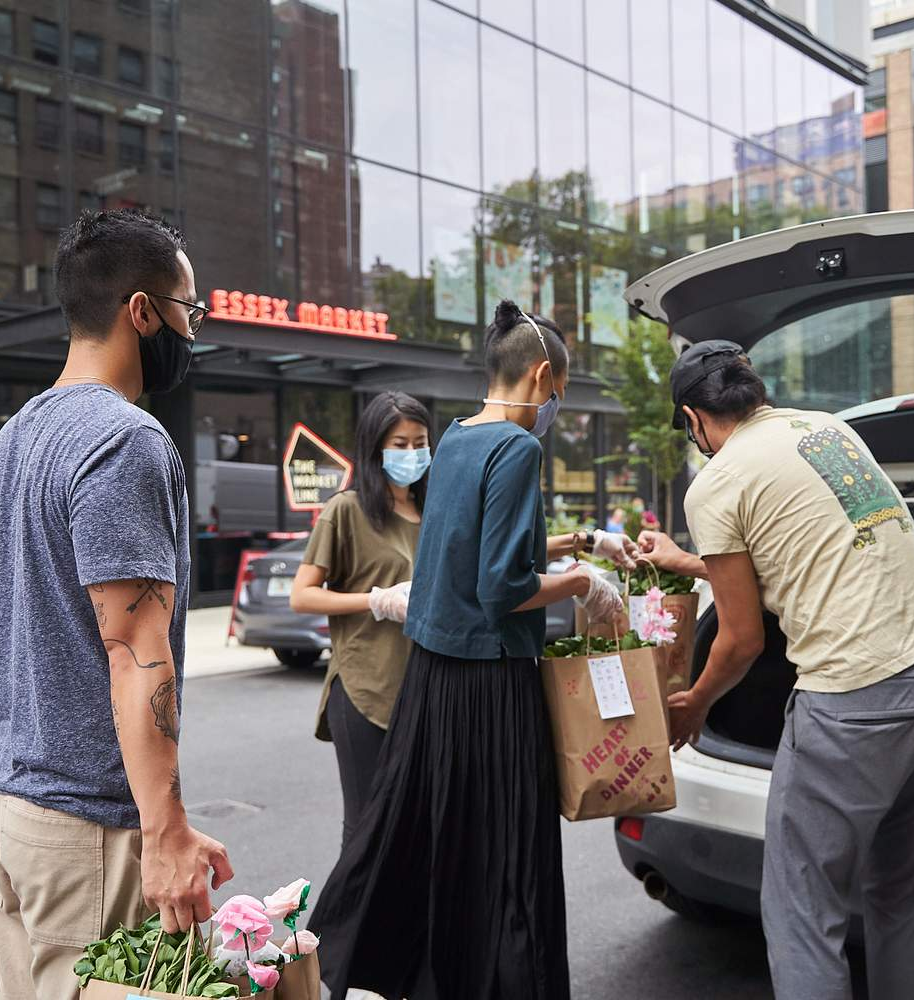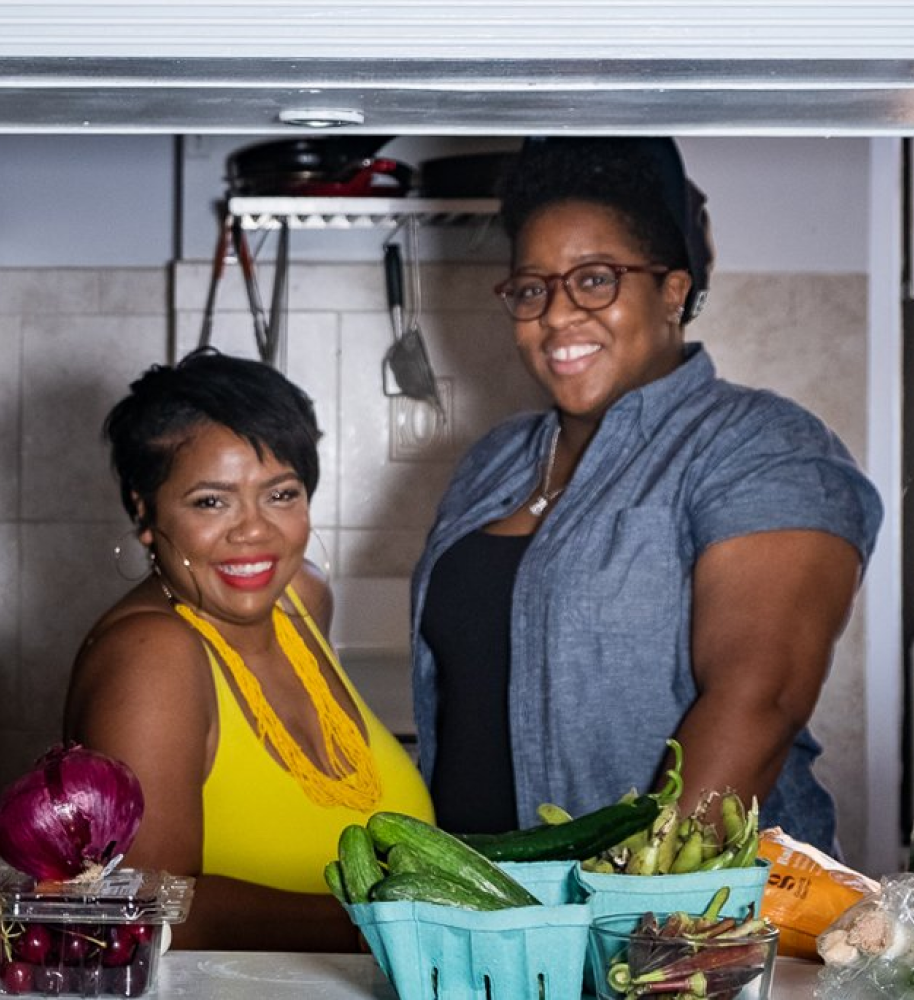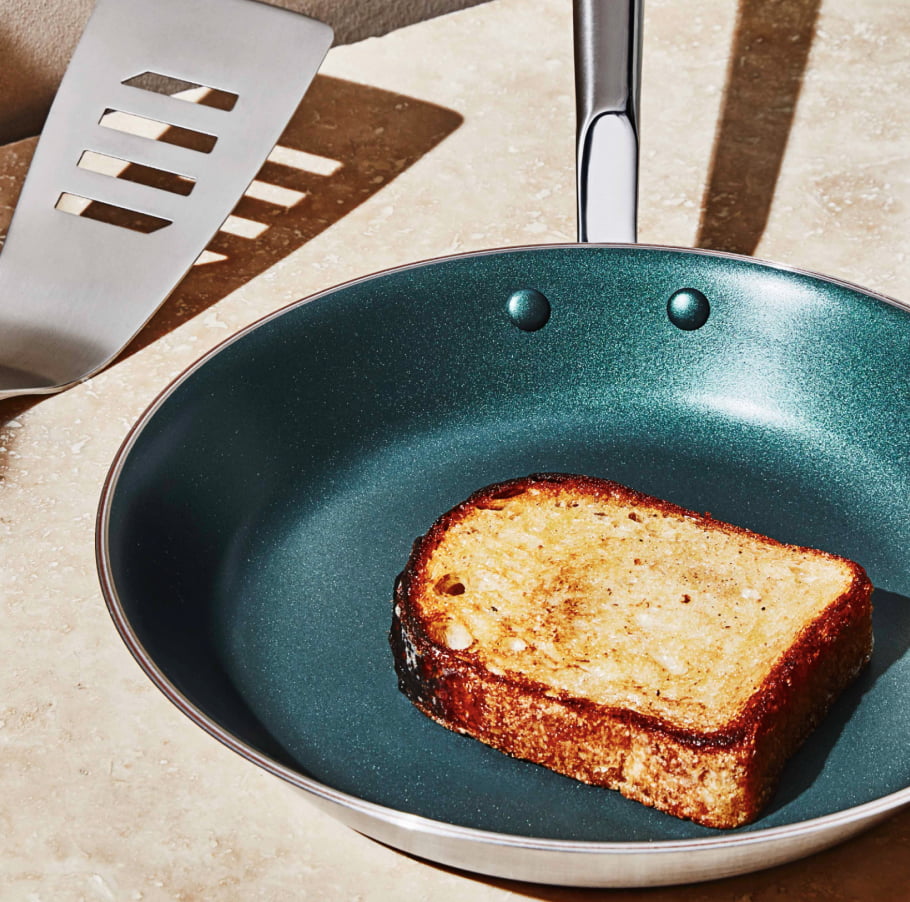The COVID-19 pandemic became a personal, urgent issue for Moonlynn Tsai and Yin Chang quickly.
The couple live on Manhattan’s Lower East Side, and had to deal with racism, harassment, and hostility from strangers on the street when news of the pandemic became widespread and the coronavirus engendered a wave of racist attacks on immigrants and Asian-Americans. They heard from friends and the news that elders in Chinatown were experiencing abuse and harassment; on top of that, Chinatown’s restaurants were often sitting empty well before the city shut down. Many local families were going without food. So one night, they ran into their local Trader Joe’s fifteen minutes before closing time to stock up on nonperishables they could hand out in the neighborhood. “We didn’t really think,” Moonlynn remembers. “We just reacted.” In the past 8 months, that split-second idea has turned into a nonprofit called Heart of Dinner, which delivers home-cooked meals and groceries to low-income elderly Asian-Americans in New York City who are currently homebound.
The organization began as a donation-based supper club the couple ran in Los Angeles as a way to meet new people and support local organizations combating food insecurity. They hosted each meal at a custom-built, 12-seat table in their downtown loft. “It really was about providing nourishment for mind, heart, and soul,” says Yin. When they moved to a much smaller apartment in New York so that Moonlynn, a restaurateur, could help open the now-beloved Malaysian restaurant Kopitiam, they put the dinners on hold. Once they began cooking meals out of their New York apartment for elders they found through a variety of social service organizations, they brought the name back.
Heart of Dinner’s current iteration carries on that original definition of holistic nourishment. When they were still cooking all the meals themselves and organizing the delivery of 200 dinners a week, Moonlynn and Yin wrote hand-written notes on each plastic container that said “we are thinking about you and we love you.” They decorated the paper bags they traveled in with little eyeballs and eyelashes. Now that their operation has grown and word has spread—they deliver over a thousand meals a week, cooked by chefs around the city, and receive hundreds of decorated paper bags and handwritten notes (often written in both English and Chinese) from all around the country.
“We didn’t really think, we just reacted.”


“It has evolved from our little eyeballs into these drawings that are beautiful to the point where people are cutting them out and saving each piece each week, putting them in binders,” says Yin, who has put aside her work as an actor and entrepreneur this year to dedicate herself full-time to Heart of Dinner. “All the colors have brought a lot of them joy, especially at a time where these people are at home, feeling down and socially isolated.”
For the people they’re feeding, these meals are a rare opportunity for connection at an isolated time. “People have been saying how much this has meant to them,” Yin explains, “not only because they’re being provided with meals, but those meals are giving them something to look forward to every single Wednesday.” Many of them don’t have family nearby, or their family isn’t able to visit because of pandemic safety measures.
Artist Stephanie Shih has been delivering meals and groceries to 25 people each week since July. She and friend Jasper Lin have been delivering the same route each week, and seeing the same faces each time. “There’s one lady who, every week after we go, texts us in Chinese saying ‘thank you so much, you guys are working so hard, you’re working too hard and you should take a rest,’” Shih says with a laugh. Another woman hand-sews masks and gives them to Shih in individually wrapped ziploc bags for Heart of Dinner to distribute. Shih and Lin now know the preferences of each person they deliver to: some want extra vegetables, some want more fruit. It’s a small but meaningful detail brought of consistency—the sort of thing your family would know about you, but a stranger wouldn’t.
That level of comfort is important to Moonlynn and Yin. “Whenever we bring on a new restaurant partner, we ask them to make something that reminds them of their grandparents, or make something their grandparents made, or make what they would want to make for them right now,” says Moonlynn.
Heart of Dinner has made the couple consider how they can make their kitchens kinder. They’ve seen firsthand the small things individuals can do at home—writing a note, decorating a bag—that can boost a stranger’s spirits. For those looking to make their own kitchens kinder, Moonlynn and Yin recommend looking around your neighborhood at how you might be able to help, or whom you might be able to feed. “Notice and observe the people making a difference in your community,” says Yin. “What can you do for them in your own kitchen? You can make meals for someone you know may be having a hard time, or help buy groceries for someone who lost a job, and pass it all off safely.” This will be a difficult winter for many people, the couple notes, and therefore an even more important time to support those around us.


To help:
- Follow @heartofdinner on Instagram
- Help with writing handwritten notes or illustrating bags
- Volunteer to deliver meals to homebound elderly in NYC
- Donate if you are able
